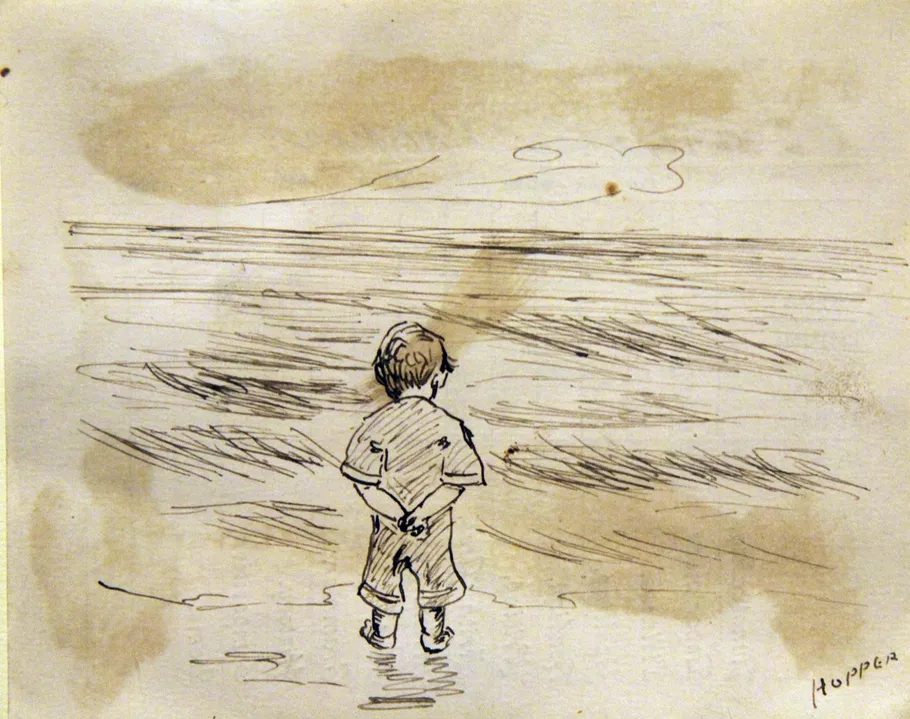Imagine for the last time that you are lying beside a man in bed, feeling the firmness of his grip and the solidness of his body pressing against the cleft of your cheeks. He tells you, You’re the most incredible thing that has ever happened to me in a lifetime. Then he represses a chuckle so that it escapes through his nostrils in the form of a huff laced with wonder. You giggle and remind him that he’s been saying this the entire evening. He plants a kiss on your temple and caresses your forearm gently.
And suddenly, there is quiet. The night beyond the parted curtains is dark purple, dotted with cones of light spilling from somnolent streetlights. He does not always fall silent, but you enjoy his silence until he rolls out of bed, walks to the window overlooking the sleeping world, and says, This will be our last night together. You do not say, What? a phrase you deem too premature in moments of surprise. Nor do you turn introspective. For a longer moment he expects you to rise, to walk up to him on the balcony, hands folded across your chest, apparently to fend off the cold, but in reality, doing absolutely nothing to shield your heart from the weight of this betrayal. But you do none of this. And so, he looks over his shoulder, exasperated. So you won’t say anything? he sighs.
As unexpectedly as he uttered that rash decision, he launches into exhaustive explanations. It’s his in-laws, he begins, especially his wife’s uncles who have been probing into their marriage. Their niece must produce grandchildren for their sister, whose diabetes has deteriorated, and doctors suspect early signs of dementia.
They say I need to get to work, he tells you. Or am I not a man?
You have never understood why he entertains their interference. Prove to them you’re a man that can lead his own life, you want to say. But instead, your words recede like a weak tide. Deep down, you do not feel like a husband-snatcher, because the last time in his house, his wife had laughed and said teasingly, Oh, is that him, the boy we’re going to marry soon? From that moment, you realized this affair had never been clandestine.
She was hospitable. She called your phone to ask when you’d visit again for Christmas, Easter, New Yam Festival. Poor woman, you thought. She has to endure her husband’s philandering with men. Beneath her warmth, you saw a broken woman.
He begs you to understand. You want to tell him to stop making her suffer. She has her life, and you are done being a secret, a thing to hide, like a doll in the custody of a boy.
But instead, you just watch his naked body, the way his muscles twitch as he pleads. And you are drawn back to the day he offered you a lift from town to the lecture hall, his biceps taut as he navigates a bend, bulging through his sleeves. The next day, here in this same room, you groped those muscles like prayer. Now, in this peach darkness, he catches your lips tugging at the corner in remembrance, a wicked smile. His countenance shifts drastically in this fleeting moment, and with it, the power dynamic tilts in your favour—at least, you imagine it does. Your heart flutters, satisfied at his inability to mask his angst. If what this old man wants from you is desperation, stoicism is what he gets instead.
The next morning, he will return to his wife. And you will check out of the room alone, telling the receptionist at the lobby that this is the last time you will be here. The perfunctory smile she wears over her uniform will slip for that brief instant, revealing sadness.
I go miss you well well, oga, she will confess.
And you will wonder if the man will miss you too.
She will admit she will miss the number of times you made your man tip her a generous amount in hard currency that could afford her a year of comfort without the salary attached to this job. Shut-up money, the man had called it the first time you asked him, Why so much? Two men cannot be friends lodging in a hotel room every other night, he had explained. She knows what we are, but with this money, her lips are zipped.
You have known grief before. In a different light. You were ten. You returned home from school to the howling and screaming and a sea of unfamiliar faces in your house. When you sidled closer to the living room door, there was Grandpa in bed, still wearing the same smile he had in the morning, when he shared his roast corn and ube with you. But now, he was in a different cloth, as if about to leave the house. Except one does not wear coral beads and isiagu to fall into a deep sleep.
Shrouded in ignorance, you had innocently said, Mommie, wake him up. I’m back.
She held your tiny arm and her tears back, shaking her head in between sobs. No.
You started screaming now. Wake him up! Up! But Mommie said in Ogba, Kodiya. It’s enough.
Looking back, it amuses you that despite the scene you created, no tears ever came. Your eyes were dry and vacant, like a desert.
But for this man with whom you have neither shared stories nor felt truly seen, and with whom you shift from bed to bed while maintaining an arm’s length in public, you cry. Silently.
At the university campus, between the dormitory and classroom, you do not call the man again. The first time you tried after he left the country, an artificial voice spouted out that his number cannot be reached right now, please drop a
You cut the call mid-sentence.
Classes feel endless.
Yesterday, the professor recited Okigbo’s Heavensgate and most of your classmates muttered that the poet did it better. The only thing the professor could do better, they said, was writing novels with shallow characters and forcing his students across the faculty to purchase them; otherwise, no assessment point. Today, the assistant lecturer is in class. He is a lean man in a brilliant blue caftan. The text in his hand is Oscar Wilde.
And now they’re forcing us to read gay writers, says a voice that is too loud to ignore. Oscar Wilde, James Baldwin and contemporary queer writers should be excluded from the curriculum.
The lecturer remains calm. Forget your discontent with queer folks, he says. Do this course with the understanding that you can only move forward if you pass its exams.
Straight people don’t force sexuality on us the way queer people do, the boy argues.
Straight people don’t have to, the lecturer replies. It’s like expecting a fruit to fall upwards.
His charisma is like the sun amidst the moon in a twilight sky. It outshines the ruckus in the classroom.
The tension settles down. Yet, you feel an unsettling irritation.
His use of the phrase “straight people” excludes him from their cult, and you realize he is one, like the man. But you do not ask him after the class.
The next class, he does not look your way. You are grateful, but slightly worried. He throws questions to the hall and lets your hand hang, deliberately calling on another student to answer.
Is he avoiding you because he also knows you are one?
The fear of our safety in this loudly heterosexual world has reduced us to whispers, to a species fluent in Polari. This is what you blurt out as you run up to him at the parking lot after class. He stops in his tracks and turns to regard you. Your eyes do not meet his; they dart sideways, then up and down. He mouths his number. You punch it into your phone.
He walks like he has a weight balanced against his chest, blocking his view so that he must tilt his chin up to see the world ahead of him. And you cannot stave off the thought of him moaning under your weight. He enters his car and pulls out onto the road.
That night, you text him. He replies immediately. Your heart leaps. For two consecutive nights, you both uphold this ritual.
But today, you do not find his messages. Until Thursday, when his lecture will take place, you will not see his face on campus.
You make yourself available for the African Studies class. The lecturer, a bespectacled woman, does not seem to have forgiven the past injustice meted out against African ancestors by their colonial masters. Even though her words are articulate, the undertone carries bile.
Your gaze lingers beyond the window. His car is nowhere in sight.
Do you want to excuse us? Bespectacled Lecturer snaps.
You apologize and promise to lend her your undivided attention. She carries on with the self-righteous anger, which you considered inapt, because most Africans today defraud the white and deplete their limited resources as illegal migrants. In years to come, should they launch a counter-aggression like Africans today?
A student stands up and debates against Bespectacled Lecturer that nepotism needs to be expunged from African cultures. It is the primordial catalyst of our problems, she concludes. Ripples of approving applause rise as she resumes her seat.
Your phone chimes with a notification: I’m at the airport. Your heart almost jumps out of its cage. But then you see the sender’s name. It’s the man. You delete the message unanswered.
After his class on Thursday, you and the lecturer talk about many things. But you do not mention the man.
He tells you that literature saved him.
How? you ask.
He remains silent.
What about God?
He still remains silent, and you laugh, saying, I understand now.
In the following days, you like how his messages flicker on your screen like morning sun slinking through a curtain.
You follow him home.
His fingers trace the scar on the nape of your neck. It is curved, the skin raised in a keloid, bumpy like embroidering woven on silk. He caresses the scar with his tongue and whispers, It’s beautiful.
It occurs to you that the man had never appreciated it. In all your outings, he insisted you wear turtlenecks.
You tell him how it got there: You broke one of the china plates your mother called “breakable plates.” She nicked your skin with the shards. She had yelled warnings to your ear beforehand, but that was the perfect moment to make good on her threats. She was not really your mother. She should have been a mother to your cousins, but she never gave your uncle any child.
You lost your father to a road accident. A tanker keeled over his car, flattening his remains, almost like dough under a rolling pin. Your pregnant mother swallowed pills that smothered her breath. They were buried in the same grave—husband, wife, and unborn child.
He brings you back to the dormitory. Along the trail of cassia trees flanking the road, he pulls the car to a halt. This part of campus is crammed with students milling in and out of square rooms.
He gets out of the car. You follow suit. You will learn that his anger comes like lightning, it stalls before it strikes. But right now, you do not care about this. And seemingly, he does not care that he could lose his job, kissing you beneath the open sky.
The end
Glossary
Ube means pear
Kodiya means “It’s enough.”
Isiagu is a native royal regalia embossed with images of the head a lion
AUTHOR BIO
Chimezie Okoro, a medical laboratory scientist in training, is a Nigerian writer. He has works published or forthcoming in African Writer Magazine, Afrocritik, Kalahari Review and elsewhere. Connect with him via Instagram @okoro.cletus.5.
Email: okorocletus2019@gmail.com



